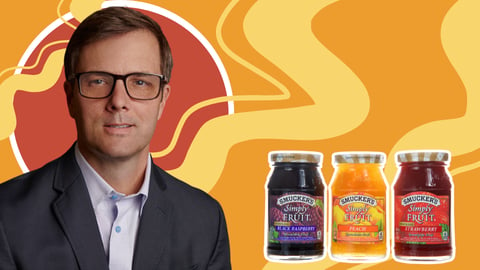Supply Chain Investments to Continue, Plus 8 Key Areas of Growth From Gartner
Budgets may be tighter this year as consumer goods companies navigate a troubled economic climate, but it’s not keeping them from making major investments in their supply chain.
According to recent Gartner data, there’s three trends holding steady in this area: upgrades that create new forms of engagement, optimize for resilience, and scale performance that enables tech to be delivered at any place and time.
What type of growth can we expect in supply chain technology? Gartner surveyed 499 supply chain leaders from October through December 2022 in North America, Latin America, Western Europe, and the Asia/Pacific region, finding that 65% anticipate funding new technology investments and 73% of supply chain IT budgets this year, on average, to be allocated to growth and performance enhancements.
8 Areas of Opportunity
Gartner expects the majority of supply chain investments to hit eight key areas: artificial intelligence, operations, mobile assets, cloud storage and computing, workforce planning, IT architecture, cyber security, and integrations.
1. Artificial intelligence (AI): Supply chains will see great transformations with the use of actionable AI. Gartner expects the tech will help drive decision making, tapping into human-like problem solving that’s augmented by real-world, adaptable data. Unilever is one company leveraging AI, using it to develop science-backed products through the power of automation and robots.
2. Operations: Smart tech is set to develop end-to-end changes across the supply chain, impacting manufacturing, service and logistics, transportation, global trade, and more, according to Gartner. Take, for example, Keurig Dr Pepper’s supply chain realignment efforts to accelerate enterprise-wide productivity and optimize growth.
3. Mobile assets: The combination of sensory tech investments with operational research techniques to optimize business intelligence will have myriad benefits across warehouse operations, says Gartner. From improving visibility and capacity, investments in this area will trickle down to shipping and logistics.
4. Cloud migration: Companies are looking for agile, composable platforms, according to Gartner, and so cloud tech is the answer for many consumer goods companies aspiring to elevate their IT infrastructure. Henkel is migrating fully to the cloud over the next upcoming months and Unilever recently became a cloud-only enterprise.
5. Workforce: Many companies will be using their investment dollars to increase employee engagement, which should improve frontline worker performance, satisfaction, and retention, says Gartner. Upskilling should be a big part of this — so much so that CGT predicts an entire job will be dedicated to this area of focus.
6. IT architecture: Consumer goods companies are transitioning to composable business structures, according to Gartner. “They are designed to follow the core design principles of modularity, autonomy, orchestration and discovery, with a specific business use case,” said the company.
7. Cyber security: The more tech, the more risk for fraud and digital penetration so Gartner expects enterprises will increase their cybersecurity to cover vulnerabilities. Companies will especially need to be careful as they implement still-learning technologies such as generative AI.
8. IT integration: Some companies will piece together their preferred solutions, while others will overhaul entire systems. Gartner predicts that enterprises will need to invest in integration to tie together a “tactical, execution-centric, and technical view of system interoperability to a strategy-led vision of a more-interconnected world.”
“The last three years of uncertainty have blurred the line between business and technology strategies to the point that they must be considered together,” said Simon Jacobson, VP analyst in Gartner’s supply chain practice, in a statement. “Supply chain leaders must have an understanding of the strategic, disruptive, and unavoidable technologies that will impact their planning processes over the next five years.”






